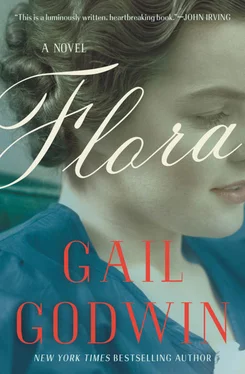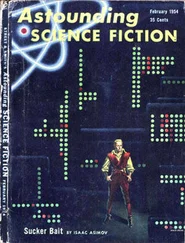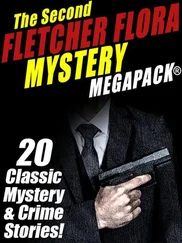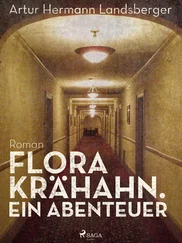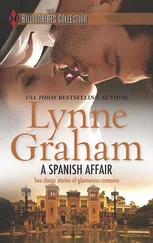“You didn’t need to bring tea bags,” I said. “And we already have flour and cornmeal.”
“Well, I wasn’t sure. And I never go anywhere anymore without my self-rising flour. In a pinch, you can make biscuits with it and mayonnaise. I baked them for my teacher-training group last winter and they came out perfect every time. And this cornmeal is stone-ground at a mill near where we live. Now, Helen, you’ll have to show me where everything goes.”
“What are those dried-up old things in the wax paper?”
“These are Juliet’s famous herbs. For spaghetti sauce and to enhance our everyday dishes.”
“Juliet who?”
“Juliet Parker. Don’t you know her name? She raised your mother and me.”
“You mean that old Negro who lived with you?”
“There’s a lot more to Juliet than that. And she’s not old. Now this apple-cured ham is from your uncle Sam. He picked it out especially for you.”
“Uncle Sam owns the meat market and has been separated from his wife for ages and ages,” I said.
Flora needed to know that I was familiar with the names that mattered in my mother’s past.
“Well, he’s the part owner with his friend Ben Timms. Ben and your uncle Sam and my daddy worked in the iron mines together when they were young. Uncle Sam is getting remarried. I mean he and Aunt Garnet are going to get remarried. They were never divorced, but they want to renew their vows and make a fresh beginning. Isn’t that sweet?”
I stared at Flora, still wearing her little hat with the demure veil, so proudly unloading all this foreign food and all these people with their complications into our house.
“Is everything all right?” she asked. Something in my face must have sapped the confidence she had brought with her on the train. Already I was learning how effectively she could be managed by a simple look of disdain.
“I was just thinking where all this stuff should go,” I said.
“Juliet and I wanted to be sure I brought enough to give you wholesome meals over the weekend. We’ll order whatever else we need from the grocery store on Monday.”
“Why do we have to order? We can go and get whatever we need in Nonie’s car.”
“Oh dear, I thought your father would have explained. I don’t drive.”
“Do you mean you can’t, or what?”
“I never learned. None of us did. We didn’t have a car, so there was no need.”
“But how are we going to get anywhere?”
“Your father has set up an account for us at the store. They make lots of deliveries because of the gas rationing. All we have to do is make a list and call up. We don’t even have to pay when they bring it. It’s all been arranged by your father, isn’t that nice?”
“But how will we get to church?”
“I thought maybe we could go down that shortcut your grandfather built for his patients, so they could walk to the village. Your father said you’d show me.”
“That’s impossible! That shortcut is completely grown over, it’s dangerous!”
What had my father been thinking? In its heyday the steep path down through the woods to the bottom of the road had dispensed with a mile’s worth of Sunset Drive’s hairpin curves. My grandfather had had the stepping-stones brought in from a quarry at his own expense; the residents on lower loops of the road, who would also profit from the shortcut, had granted him rights-of-way for his project. But that was almost thirty years ago, when my sixteen-year-old father and Willow Fanning had used it for their getaway. Surely he was not still remembering the path as it was then . Many of the stones were now upended or missing and the pine railings rotted out. Where had I been when my father was dispensing his obsolete information to Flora?
After we got the Alabama foodstuffs put away (Flora was thrilled to discover some empty cocktail olive jars in the pantry, just the right size for “Juliet’s famous herbs”), we climbed the stairs and went down the hall to her room at the front of the house. I had lost all enthusiasm for my tour. It occurred to me now that it would be wiser to keep our family stories separate from Flora’s. I lolled in the doorway of the Willow Fanning room and let Flora prattle on as she hung up her few garments and deposited the rest of her things in the freshly papered drawers that Mrs. Jones, who cleaned on Tuesdays, had prepared. Next to her underwear, Flora slid in some hand-sewn satin envelopes.
“What’s in there, handkerchiefs?” I asked.
“Sanitary napkins. You know what those are, don’t you?”
“Good grief, yes,” I said, offended. “My grandmother told me about all that stuff years ago.”
Presently I saw Nonie’s pile of letters go in the top drawer and determined to have a secret look at them as soon as an opportunity arose.
“Are those all the clothes you brought for the whole summer?”
“Oh, no, honey, Juliet is mailing me the rest. We decided it was more important for you to have the right meals for the weekend.”
When the phone rang in the hallway, I was sure it was my father calling from Oak Ridge to see how we were getting on. Adopting Nonie’s ironic deadpan, I would be able to tell him about all the food in the luggage without Flora knowing we were making fun of her. But it was Lorena Huff.
“Helen! Guess what Rachel just found under your bed in her room. Your new blue Keds!”
“Oh, I’m sorry.”
“Not at all, sweetie. Don’t you know when you leave something behind, it means you want to come back? I’ll bring them over. Do you need them today?”
“Not really.”
“Oh.”
“I’m helping Flora get settled in.”
A pause. “Everything’s going okay, then?”
“Yes, ma’am, we’re doing just fine.”
“In that case”—a shade more formal—“I’ll drop them off tomorrow.”
“We might not be home. Tomorrow’s church.”
“Well, look, Helen.” Now there was a chilliness, a touch of hurt. “I’ll drop them by when I’m over that way next. No need for anyone to be home . I’ll just leave them inside the screen door, okay?”
“Okay.” Then, realizing I had forgotten to say the proper things when she and Rachel had brought us home, I burbled out my thanks for the week at their house. “Everything was just wonderful, Mrs. Huff. Thank you for having me.”
“You’re welcome, Helen.” She sounded tired. “If you need us, you know where we are.”
“Yes, ma’am.”
“Please give my best to your father next time you talk to him.”
“Yes, ma’am, I will.”
When I returned to Flora, she had changed out of her traveling outfit into some wrinkled pedal pushers and a sleeveless blouse that showed where her tan stopped just above the elbows. “You know what, Helen?” she said, wriggling her bare feet into scuffed brown loafers with pennies in them. “After I give you a light lunch, why don’t you show me that shortcut of your grandfather’s anyway? Maybe it’s not completely out of the question. When was the last time anyone used it?”
“I have no idea. I’m not supposed to mess around down there by myself. But we can walk down and look at it now if you want. I’m really not hungry. Just remember I said it’s dangerous.”
As we tottered down our horrible driveway, she acted pleased each time I grabbed for her hand, but I did this to keep my balance. (“Everyone still on board ?” Lorena Huff had cried as her new Oldsmobile bucked a nasty rut today.) I had grown used to hearing Nonie complain about the ruts (“Goddamn sinkholes,” my father called them), but I was in the car at those times. After several of Flora’s apologetic little yips when she stumbled, I did a pretty fair imitation of Nonie’s voice reassuring her that we were going to get this road seen to as soon as the war was over.
Читать дальше
